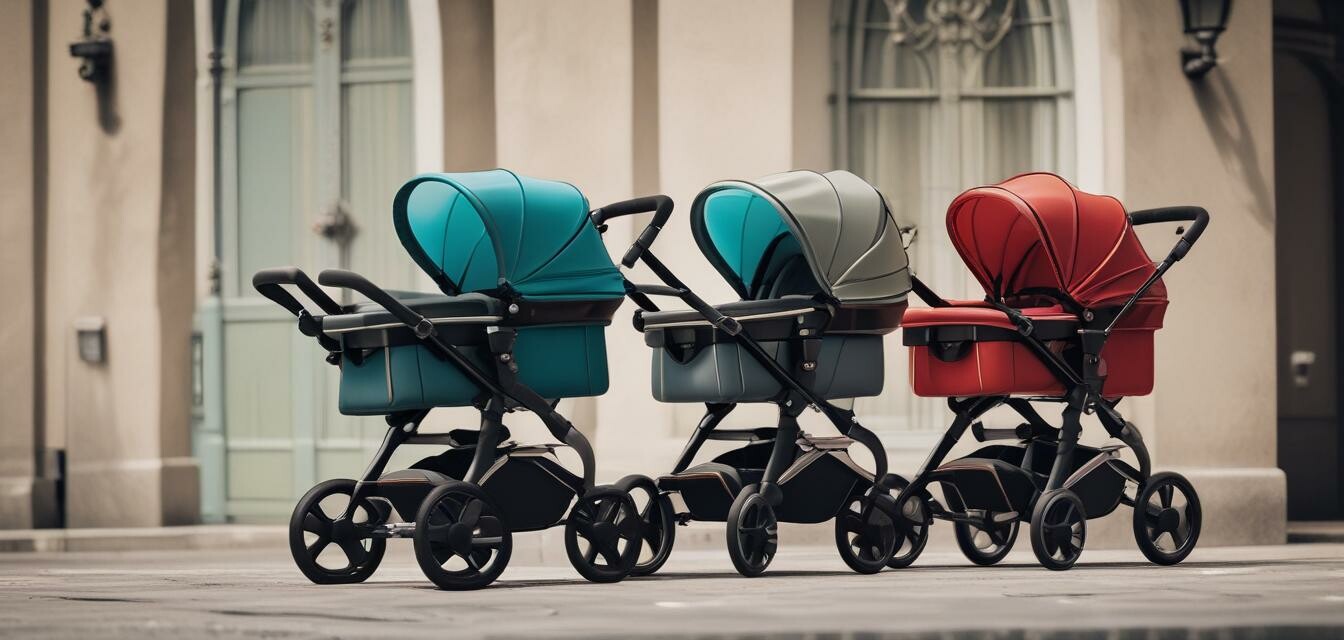
Understanding the Different Stroller Types
Key Takeaways
- There are various stroller types, each designed for different needs.
- Understanding the advantages of each stroller can make shopping easier.
- Always consider your lifestyle and the baby’s needs when choosing a stroller.
As a new parent, navigating the world of baby strollers can be overwhelming. With numerous options available, it's crucial to understand the different stroller types and their specific advantages. This guide will not only educate you about each type of stroller but also help you make an informed decision when you're ready to shop.
Types of Strollers
Strollers are generally categorized based on their design and intended usage. Below we break down the most common types of strollers available in the market.
| Stroller Type | Advantages | Ideal Usage Scenarios |
|---|---|---|
| Convertible Strollers | Versatile, can transition from an infant carrier to a toddler seat | Parents wanting long-term value, suitable from infancy to toddlerhood |
| Jogging Strollers | Designed for active parents, stable and durable | Outdoor activities, running, or jogging |
| Lightweight Strollers | Portable, easy to fold, and travel-friendly | Short trips, grocery shopping, or outings |
| Travel Systems | Includes a stroller and an infant car seat for convenience | Traveling families, particularly with infants |
| Umbrella Strollers | Simple design, very easy to fold and carry | Quick errands, parks, or public transportation |
Pros and Cons of Each Stroller Type
To further assist you in understanding the differences, let’s explore the pros and cons of each stroller type.
Convertible Strollers
- Adaptable for various stages of a child's growth
- Usually more comfortable for longer use
Convertible Strollers
- Typically more expensive upfront
- Can be bulky and less portable
Jogging Strollers
- Excellent for fitness-oriented parents
- Shock-absorbing wheels for smoother rides
Jogging Strollers
- Not suitable for infants under 6 months
- Heavier and bulkier than standard strollers
Lightweight Strollers
- Easy to transport and store
- Generally very affordable
Lightweight Strollers
- Less durable than heavier options
- Limited features compared to heavier strollers
Travel Systems
- Convenient for on-the-go with both car seat and stroller
- Easy transitions between car and stroller
Travel Systems
- Can be heavier than standalone strollers
- May take up extra space in your car
Umbrella Strollers
- Extremely lightweight and compact
- Easy to navigate through tight spaces
Umbrella Strollers
- Less padded for comfort
- Not suitable for long trips
Factors to Consider When Choosing a Stroller
Here are some key factors to keep in mind before making a purchase:
- Safety: Ensure the stroller meets all safety regulations.
- Comfort: Look for strollers with padding, adjustable seats, and sun canopies.
- Size: Consider your vehicle and home space when storing the stroller.
- Ease of Use: Verify how easy it is to fold, unfold, and maneuver.
- Budget: Set a budget that fits your needs while ensuring quality.
Shopping Tips
Before heading out to shop, take the time to research the types of strollers that fit your lifestyle. Visiting our Buying Guides can provide detailed insights into what to look for.
Conclusion
Choosing the right stroller is an essential decision for every parent. By understanding the different stroller types, their advantages, and ideal usage scenarios, you can make a more informed choice that aligns with your lifestyle and your baby's needs. Equip yourself with the knowledge, and you'll navigate the market with confidence!
Further Reading
If you’d like to delve deeper into stroller options, consider checking our articles on Convertible Strollers, Jogging Strollers, and Lightweight Strollers.